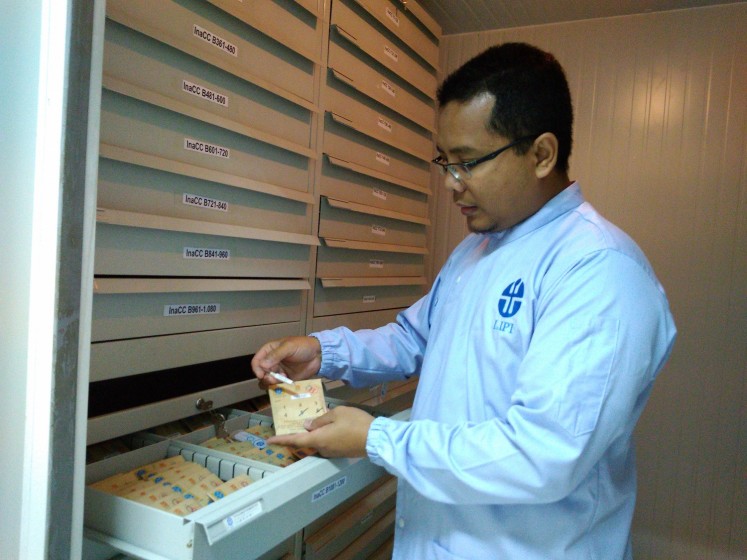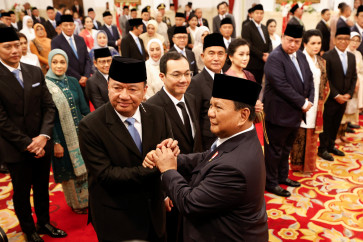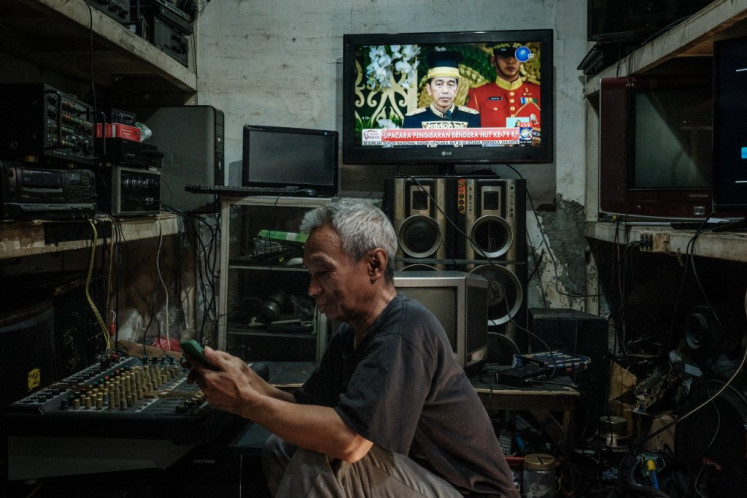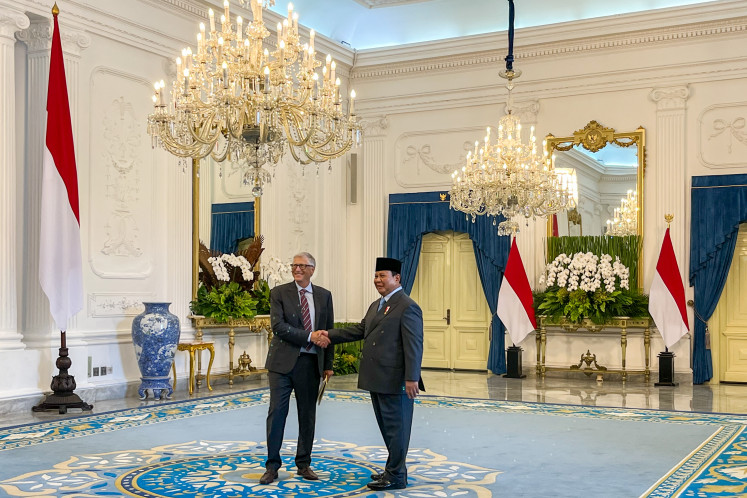INACC collection open to advance microbial research: LIPI
Change text size
Gift Premium Articles
to Anyone
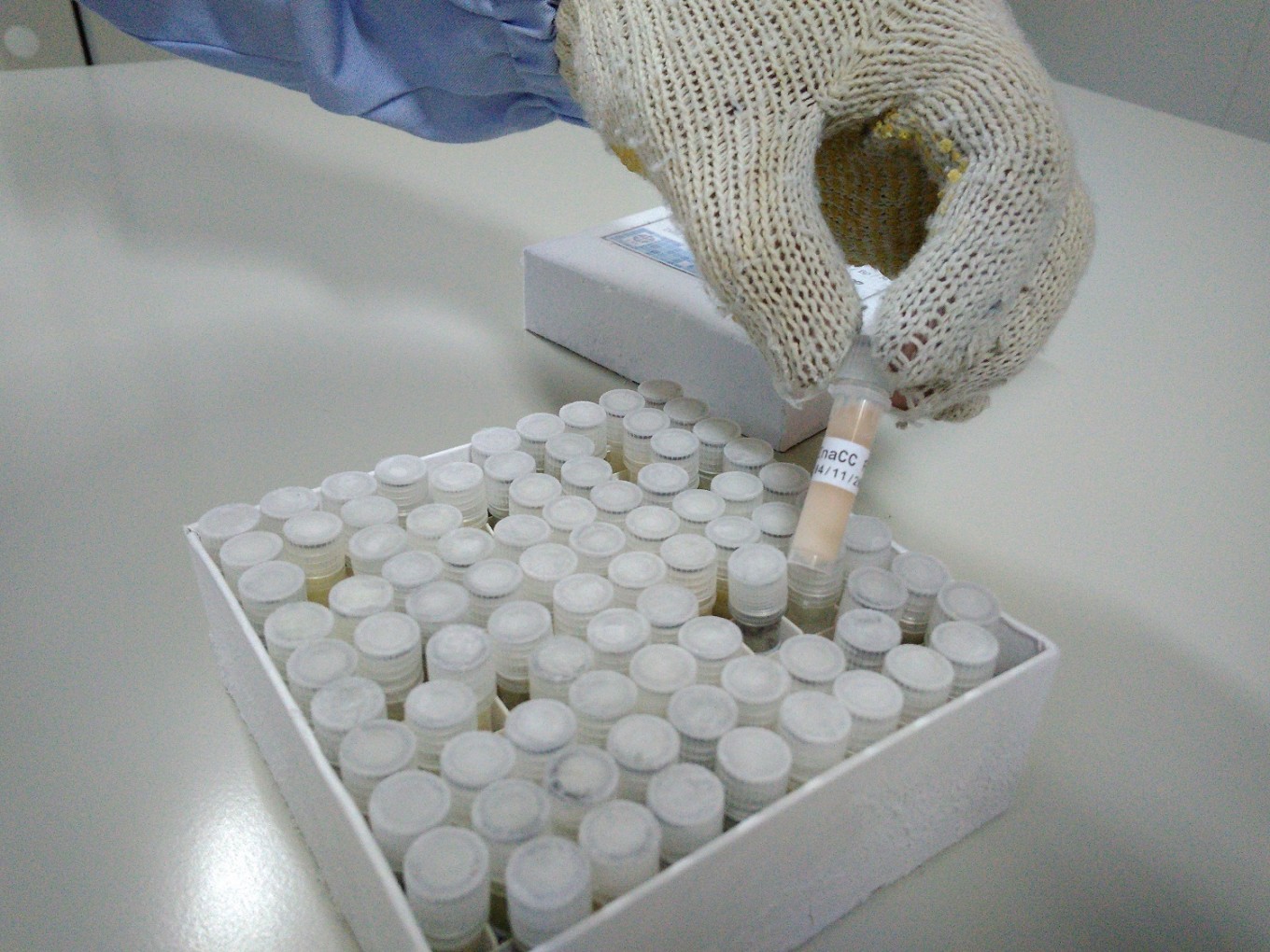 Precious organisms: Thousands of microbial species are stored at the Indonesian Culture Collection (INACC), a microbial storage bank owned and managed by the Indonesian Institute of Sciences (LIPI) in Cibinong, West Java. (JP/Theresia Sufa)
Precious organisms: Thousands of microbial species are stored at the Indonesian Culture Collection (INACC), a microbial storage bank owned and managed by the Indonesian Institute of Sciences (LIPI) in Cibinong, West Java. (JP/Theresia Sufa)
T
he head of microbiology at the Indonesian Institute of Sciences (LIPI) has said on Thursday that the Indonesian Culture Collection (INACC), a microbial storage bank operated by LIPI’s biological research center, could serve as a data source to drive further research into Indonesia's microbial diversity.
“Today, the INACC has seven types of microbes: bacteria, yeast, fungi, actinobacteria, bacteriophage, archaea and microalgae. These microbes are stored using an international-standard procedure, in which they are frozen in temperatures down to minus 80 degrees and stored in ampules using a freeze-drying process,” Atit Kanti said on Thursday.
Atit said around 5,000 isolates of the INACC’s microbe collection could be used by the public (open collection) for research. “We also have around 10,000 isolates that have not yet become part of the public collection," she added.
(Read also: Few microbe potentials discovered due to shortage of funds, researchers)
Atit said the INACC was a bank of microbes that could be used at any time by anyone, even by future generations. It offered various storage periods ranging from 30 to 50 years.
“We are selling our open collection to consumers and the use of our collection is based on regulations we have created. But at this time, we are facilitating only those parties who want to use our isolates for research purposes," she said.
Atit said only consumers that could guarantee the microbes' use only for research activities were permitted to purchase from INACC's microbial collection. The microbes cost Rp 400,000 (US$29.45) per isolate for academics and Rp 600,000 per isolate for private entities. (ebf)
